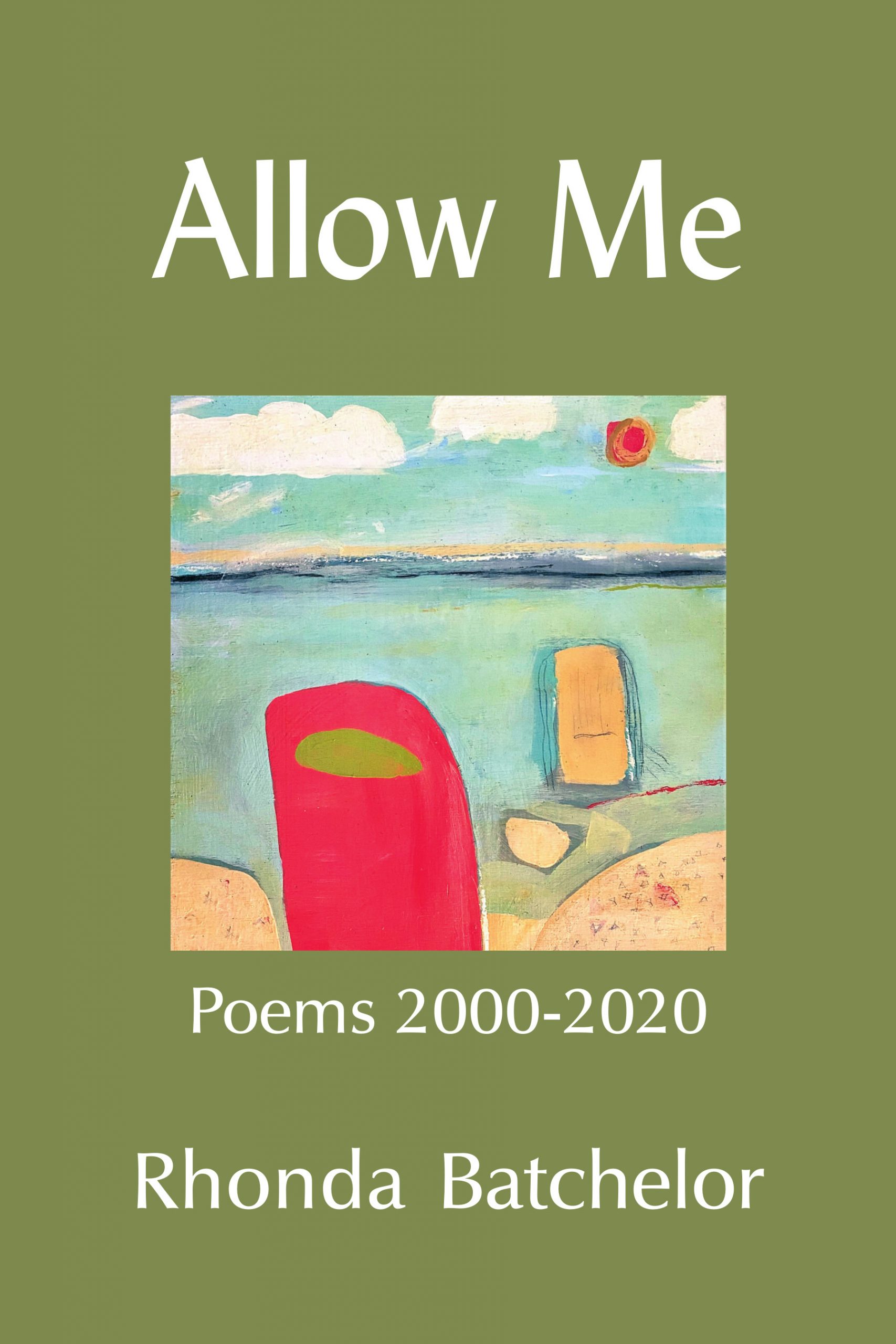Allow Me offers an eye for detail that opens quiet moments of solitude for the reader and gives unexpected appreciation for a particular fire on a cold winter day: “There must be resin in this log / to make it blaze like a saint” (“Fire”).

Batchelor works with glimpses of things that might be missed by many, and a turn of phrase that proves deeper insight, to reward her readers with an alternative perspective on both relationships that falter and those that never begin. “I wake feeling guilty, as if / I’d been unfaithful to you or your memory, / when it’s you who betrayed me / by dying in the first place, and not staying dead since” (“Death is a Great Deception”). Yet, time after time, she both celebrates her love for, and holds onto small grievances toward, a husband who passed twenty years ago.
Her artistry sets these poems like jewels in a ring, the arabesques in that ring’s setting found in an uncanny way of presenting a natural landscape that has nothing to do with people—except that it’s all about human observation and deduction: “The sun, about to drown, sets fire to wild roses, illuminates / cattle in one field, sheep in the next. My camera dies, / from happiness I think. Only then do I see him. / My first fox. Poised to scale a gate, he’s been watching me”(“First Fox”).
This is a book that cites various challenges the artist has faced and risen above in her progression toward finding her voice as an artist, without relying on sympathy as an elevating factor. Readers are given the facts, mixed with astute observations of nature. What stands out overall is her ability to see through the obstructing films that other people would get tangled in: “Let space distinguish / one voice from another. / / Throw in some romance. / / Rethink the ending” (“You Must Revise Your Life”). This book is like the diary of someone who always faces her struggles head-on, thinking about and shifting the details, sifting for what is precious. It is the self portrait of someone forever revising her own future.
Clearly, Batchelor can laugh at the sense of desperation humans often find themselves in, whether in a found poem—“I’m 54 and not conceited at all / I wear kilts / You’ve got nothing to lose and everything go gain… I’m looking for intelligent ladies” (“Plenty of Fish”)—or in her own ability to weather the tough situation as a lover leaves: “Maybe he loved the wild grasses / because they know how to bend” (“Maybe He Loved The Wild Grasses”).
Yet, despite friends that listen and offer advice, over and over again the loneliness causes her to call out: “I don’t need my view confirmed. / / I don’t need to talk. / / Only a hand to hold / on the homeward walk” (“Imperfect”). To anyone who has struggled to survive awkward or difficult relationships, this book offers a series of affirmations, pledges placed between snippets of the natural world, like leaves pressed into a book for preservation.
Bios
Sharon Berg
Sharon Berg is Poetry Reviews Editor at Artisanal Writer. She has published poetry books with Borealis Press (1979), Coach House Press (1984), and most recently Cyberwit (Stars in the Junkyard, 2020). Her fiction collection Naming the Shadows is from Porcupine’s Quill (2019) and The Name Unspoken: Wandering Spirit Survival School won a 2020 IPPY Award for regional nonfiction. [updated in 2022]

